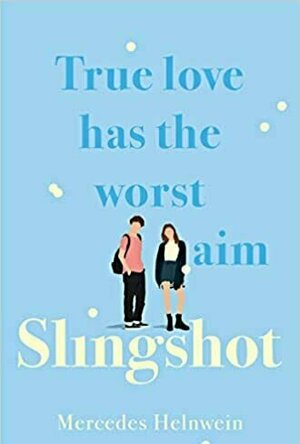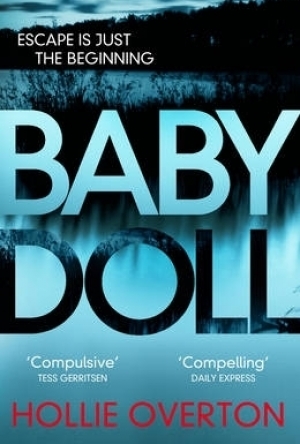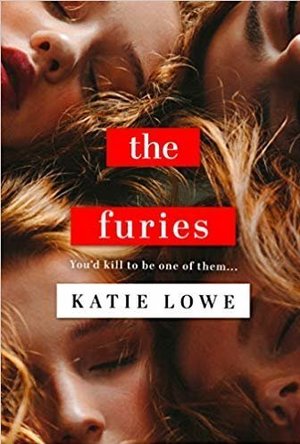
Joni and Ken: An Untold Love Story
Book
It was not a typical Sunday morning for Joni Eareckson. Sure, she was in her regular place along the...
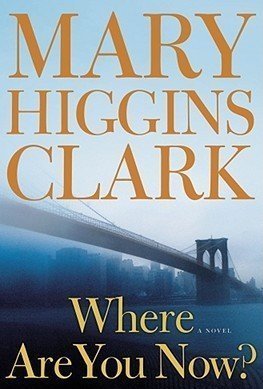
Where Are You Now?
Book
From America's Queen of Suspense comes a gripping tale of a young woman trying to unravel the...
I've been sitting on this review, because I honestly cannot tell if this book was amazing or terrible. I know, I know--how is that possible? Helnwein has written something very different here, in many ways: a raw, awkward story that often makes you cringe and want to look away. She spares no detail (or language) when covering Gracie's forays into friendship, drinking, and sex. You forget she's fifteen/sixteen, which is probably what makes it so hard, at times. Yes, she's alone at boarding school, but still? Is this what happens at boarding school? Perhaps that's my problem with all boarding school tales. (At least no one gets murdered.) It's a paradox. Grace falls in love with her biology teacher, which seems sweetly realistic. But when he rejects her, she curses him, destroys his property, and more--is this truly allowed, even at a third rate school? Every thing is excused as "needing the tuition money." Not so realistic.
If you're able to overlook the terrifying behavior of these young students (perhaps made all the more frightening to me, as the mother of young daughters, one of whom is actually named Grace), there are some poignant moments here. Helnwein really does capture the beauty and absolute fear of falling in love for the first time, and Grace and Wade's relationship is pretty magical. The self-centeredness of adolescence--how the world revolves around nothing else. Much of Grace's coming of age is realizing that a great big world exists beyond her. But it's tender and sweet watching her fall. There are some cute friendships too.
At many times, this is a funny and heartbreaking book. There are a lot of serious topics hidden between the craziness. Gracie and Wade are truly lovely characters, and I cared for both of them deeply. I think I was just thrown by some of the characters acting/speaking older than their age and the fact that the book truly tells it how it is, right in your face. It takes a bit of an adjustment. I'm not sure this book is for everyone, but there's a tenderness and beauty to it, and I think many teens would enjoy it. 3 stars.
BookInspector (124 KP) rated Baby Doll in Books
Sep 24, 2020
This book is actually what happens after you escape your kidnapper and go back to safety. The victim who got away in this book was Lilly, during captive years she delivered a daughter Sky. Lilly has a twin sister Abby, and their mother Eve. The villain in this book is Rick – a high school teacher and a psychopath. The whole story of this book is told by Lilly, Abby, Eve, and Rick. The author made the whole plot into nicely flowing, continuous story, told by four different and unique characters.
Every character had their way of telling the story. Lilly was the sweet girl, who suffered immensely, and that tragedy follows her in everything she does, even though she is free. Abby is the rebel twin sister, who sees the whole situation in a more aggressive way, and all she wants is revenge. Eve is the mother, who struggles between their daughters and her own happiness. Rick is a sociopath/psychopath, who justifies his cruelty and doesn’t see any fault of his actions. I am really grateful when authors put into the story, what murderers and psychopaths think, I find it very interesting and amusing to read. It’s just mesmerizing, how messed up some people can be, even though they look like normal, respected citizens of the society. So there are plenty of characters to choose from, and my favourite was Abby. She knew what had to be done, and did it.
Even though the plot was not what I expected, it was still quite a page turner, because author brought in some unexpected turns and twists in this book, which left me surprised. There is quite a bit of psychological suspense in this thriller, opening up the post-traumatic state of mind and difficult adjustment into the society. Hollie Overton is an identical twin herself, and it was really lovely, the way she wrote about the connection between twins, that bond and sacrifices are truly magical to me.
The writing style of this book was easy to read and enjoyable. Even though it doesn’t have the nastiness which Lilly suffered in detail, it still contains some strong language due to Abby’s strong character. Another plus from me to this book was short chapters, which made it a quick and more suspenseful novel. I liked the way author ended this book, with yet another turn in the story, changing many lives and futures. So, even though it does not promise exciting escape, it still brings its subtle turns and twists, playing and manipulating with character’s different states of mind.
Kristy H (1252 KP) rated The Furies in Books
Sep 26, 2019
The girl is found dead on a swing on a playground on Elm Hollow Academy property--no known cause of death. That's how this novel opens, and then we have Violet, who tells us the story looking back, recounting her time at Elm Hollow. So the story opens dramatically and we know something has terrible happened. And that Violet makes it out okay.
"Inconclusive, they said, as though that changed the fact of it, which was this: a sixteen-year-old girl, dead on school property, without a single clue to suggest why or how."
This book should be been really good--I'm a sucker for private school tales (I thought it was a boarding school one, as well, but it wasn't)--but it just didn't work for me. I thought about putting it aside several times, but I just couldn't. I need to work on my DNF skills.
There is a lot here: two dead girls; witchcraft and the occult; mythology; friendship and coming of age--and none of it feels fully explored. A lot of the book focuses on mythology as Annabel teaches some of it to the girls (I felt myself skimming over that, and I like mythology). There's the focus on witchcraft, but it never seems fully embraced. There's a lot of violence (won't go too far for spoilers) but there are never really any consequences. It's very strange, and honestly, not the sort of YA book I'd encourage for teens.
And, then, I just didn't care for these characters. Robin is hateful, and I couldn't form a bond with Violet, our narrator. That would be all well and good if the action was enough to keep my interest, but it wasn't. The book just felt jumbled, and I wasn't interested in picking it up. Even a few late twists didn't really redeem things for me.
Lots of others have found the story powerful, however, so if you like mean girls with a side of possible witchcraft, you may enjoy this more. 2 stars.

Tai Chi 108 Yang Classical Form
Health & Fitness and Lifestyle
App
Learn the 108 Yang Tai Chi classical form with these streaming video lessons from Master Yang....

Cadenza: Tuner + Metronome
Music and Education
App
We're happy to announce that, as of November 2016, more than 450,000 musicians¹ throughout the...
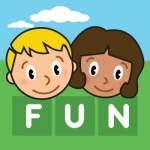
First Words Deluxe
Games and Education
App
*** Finalist for the BestAppEver Award: Toddler Apps * ** The best-selling reading game for kids...

Dictionary - Offline English Dictionary
Reference and Education
App
Came across a fascinating new word while reading an English Classic? Writing an article & looking...
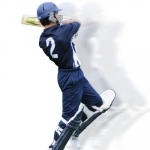
Cricket Coach Plus
Sports and Education
App
VIDEO ANALYSIS FOR CRICKET - ANYONE ANYWHERE ANYTIME RECORD | COMPARE | IMPROVE your Cricket skills...
